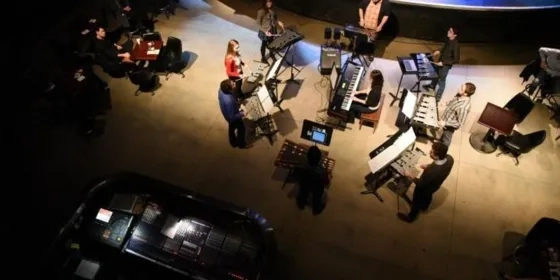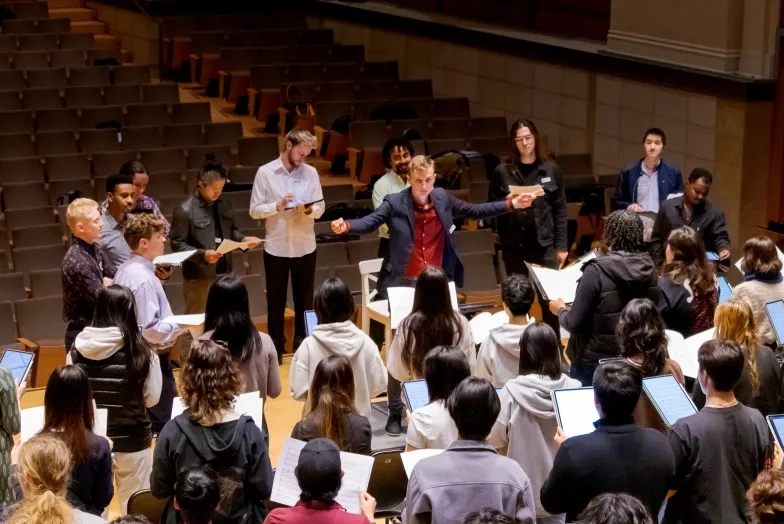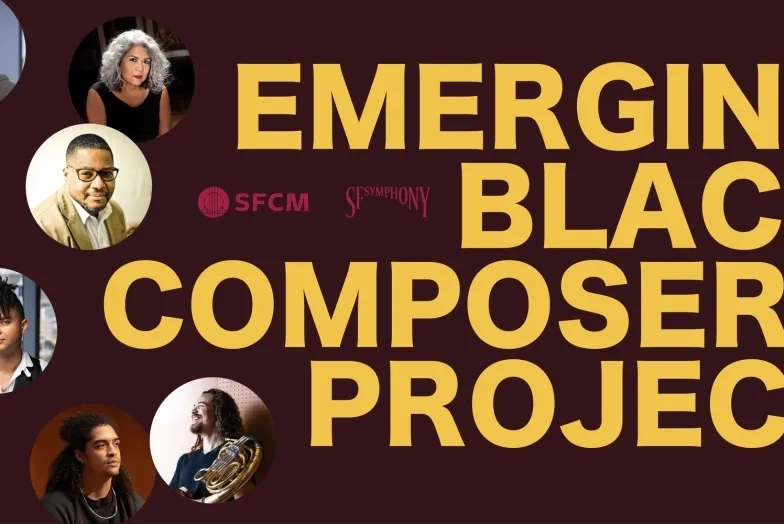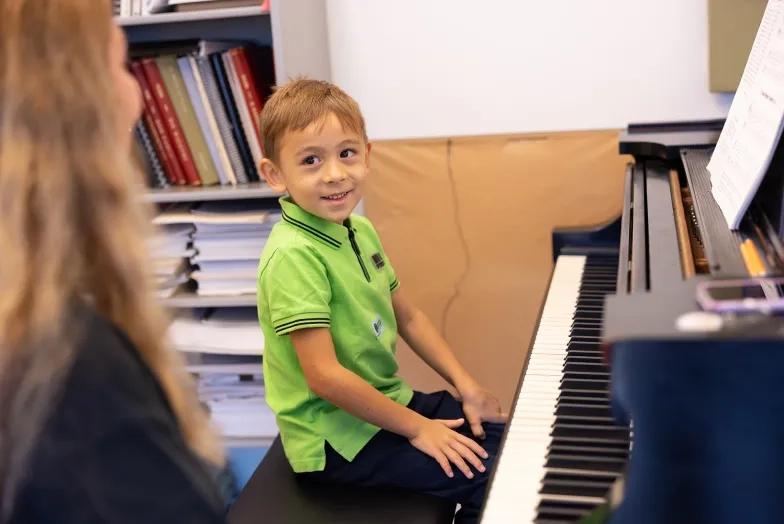Culture Shift — Small Cities Make More Music
News StoryWith the rise of fake news and internet trolling, a heightened awareness emerged, spotlighting how people have grown out-of-touch with social media “bubbles” and self-affirming Google searches. Since last year’s US general election, musicians have reacted in earnest through activism, and now even more so with the possible elimination of the National Endowment for the Arts. Teddy Abrams ’05, director of the Louisville Orchestra, is planning a touring program that promotes dialogue between differing points of view around Kentucky.
A New York Times opinion piece suggests that hipsters move to the midwest to mitigate the nation’s social divide. In the arts world, and particularly in classical music, such migration is already happening. It’s not a movement of protest—most are getting priced out of big cities, unable to cope with the cost of rising housing markets. Unexpectedly, talented artists are finding opportunities outside the over-saturated, urbanized areas. More importantly, many are showing potential to engage with audiences on a deeply personal level beyond the “bubble.” They are working in universities, starting up a music festival, or leveraging technology and going virtual. By connecting through their art form, musicians are changing the outlook of their careers and creating a new demand for the arts that could potentially alter the cultural landscape of the country. Here are some of their stories.
Expanding Your Horizons
In 2013, tenor Brian Thorsett ’04, a Northern California native, had his second child. He and his wife had pieced together a decent living in the SF Bay Area. He was in demand as a singer, and held adjunct positions at UC Berkeley and Santa Clara University. His wife, a music teacher, worked in various schools, but got pink-slipped. Their first son was born with a cleft palate, which led to other complications like hearing impairment. They were stretched financially. Their health insurance skyrocketed to $3,000 a month.
With low expectations, Thorsett applied for a couple of university jobs. While in Oregon for a performance of The Turn of the Screw, he was offered a position at Virginia Tech in Blacksburg, Virginia. Reaction to the news at home was mixed, and the conversation with the family was intense. Leaving his hometown and family support was daunting, but the cost of living in Virginia was literally half what it was in California. Thorsett did not have much to lose by taking the job—only a “good rental.” He was thankful to be offered the position. He did not have a doctorate, as most universities often require. Virginia Tech’s music department was under-developed at the time, and Thorsett had a chance to build something. “Life is busy at the university,” he says. “But I can schedule around my university teaching and I’m on the road half the year giving master classes and performing around the world.”
Culturally, Blacksburg is a small college town in a very rural part of southern Virginia. Only “blockbuster” artists get booked and local venues often struggle to get an audience. But that is changing, with new productions still managing to flourish nearby (e.g. the Victory Hall Opera in Charlottesville, VA which received a rave review from the Washington Post). Thorsett also discovered fellow talent on the VT faculty. He performs and tours regularly with colleague and VT faculty member Richard Masters. Thorsett was also surprised to find more performance opportunities on the East Coast, subbing in New York, North Carolina, Washington DC, and Massachusetts. “I am being paid to perform and research performance, and the town we live in, while it is small, is a vibrant, collegiate environment. My job at Virginia Tech fulfills my passion for doing recitals—that’s been really fun for me. I can workshop new works, take risks, and stretch myself.” Additionally, Thorsett is happy with having benefits, having more control over his schedule, and being in a position where he and his wife can provide for their family. The Thorsetts were also able to purchase their first home.
Leveraging Technology
Flutist Jill Heinke ’06 moved to Eau Claire, Wisconsin in September 2016. Before her husband landed a job at the University of Wisconsin-Eau Claire, they were living in Oakland, CA. Their neighborhood was an area undergoing gentrification. Crime still persisted and some incidents were hitting too close to home. She and her husband never imagined they would live anywhere else. This was where they wanted to start a family. Finding a larger place in a safer neighborhood would price them out of the area completely. Being a Wisconsin native, returning home was not a stretch for Heinke, but she had built a thriving flute studio of 30 dedicated students in California.
Before making the move, Heinke entertained the idea of teaching remotely with her students, and to her surprise, they were all open to trying it out. The students’ parents were thrilled to not have to drive their kids to lessons. Heinke “practiced” the online lessons to ensure that her pupils, ranging in ages 11 to 78, had the proper setup. She now makes regular trips to the SF Bay Area and her students come together when she is in town to hold in-person lessons and masterclasses, creating a festival-like environment every few weeks. “It has worked out shockingly well,” said Heinke. “When I’m in the Bay Area, I feel like I never left.” In January, Heinke gave a lecture on how to setup virtual lessons at SFCM.
Heinke is looking forward to growing new roots in Eau Claire. It is home for a thriving music festival, Eaux Claires, founded by Eau Claire native, resident, and enthusiast Justin Vernon, the band leader of Bon Iver. The city is also breaking ground on an exciting Confluence Arts Center. These new developments added to Heinke’s attraction to Wisconsin.
Her ensemble, Areon, has not missed a step either. They recently released a new recording, Thrive, with Innova Records. The group developed a flexible approach when one of the members moved to Denver. They employ retreat-style rehearsals, getting together for three to five days with intense rehearsals. Heinke’s suggestion: “Think of what you could create in a smaller community. As an alum from the San Francisco Conservatory of Music, you’re coming from a prestigious place, and people out there want people like you in their arts scene. There is so much more support and opportunity outside of the Bay Area than I imagined when I lived there.”
Being the Only Game in Town
Pianist Kate Campbell ’03 was attending the Bang on a Can Summer Festival, a renowned residency program for composers and performers in 2007, when she overheard a fellow attendee, Amanda DeBoer Bartlett, mention Omaha, Campbell’s hometown. One thing led to another, and then “Omaha Under the Radar” (OUtR), an annual music festival, was born. The other OUtR collaborators are Stacey Barelos and Aubrey Byerly. Campbell lives in the San Francisco Bay Area in California. Barelos and DeBoer Bartlett both live in Omaha, and DeBoer Bartlett performs with Chicago-based contemporary ensemble Dal Niente. There was no master plan, just the desire to have fun and work with like-minded artists.
The four-day festival proudly states, “There’s going to be some weird stuff, and that’s OK.” To Kate’s delight, their programs of new and contemporary works have not deterred audiences. Their programming has ranged from Les Moutons de Panurge (The Sheep of Panurge) by Frederic Rzewski to Steve Reich’s Music for 18 Musicians. “Reaction has been incredibly positive and people are grateful for the music,” says Campbell. “There is definitely a midwestern sensibility, which makes it even more rewarding when we receive a standing ovation to a highly experimental piece.” Campbell, who also serves on the board of the San Francisco Contemporary Music Players, feels that there is a varied age range of attendees at OUtR. “Our audiences range from young children with parents to hipsters and middle-age and on. Audiences in the Bay Area tend to feel more segregated—older demographics follow one group, younger folks follow others.”
Being the only game in town, OUtR easily finds partnership with local venues. Some of them include larger spaces like the Joslyn Museum to smaller, intimate spaces like the Kaneko Galleries and rock clubs like The Slowdown. OUtR is in its fourth season and has recently been incorporated as a nonprofit. The festival has already garnered support from New Music USA and the Nebraska Arts Council. “For us, it was really important for Omaha to share that Omaha has its own music scene—not just famous artists from outside,” says Campbell. “You need to really care about the community.”
While being forced to live and work somewhere due to economics is not ideal, it may be a trend that could potentially change the political and social landscape of the nation. Do you agree or disagree? Are you an alum living in a small city? nyhz@fspz.rqhude.mcfs@mula .



